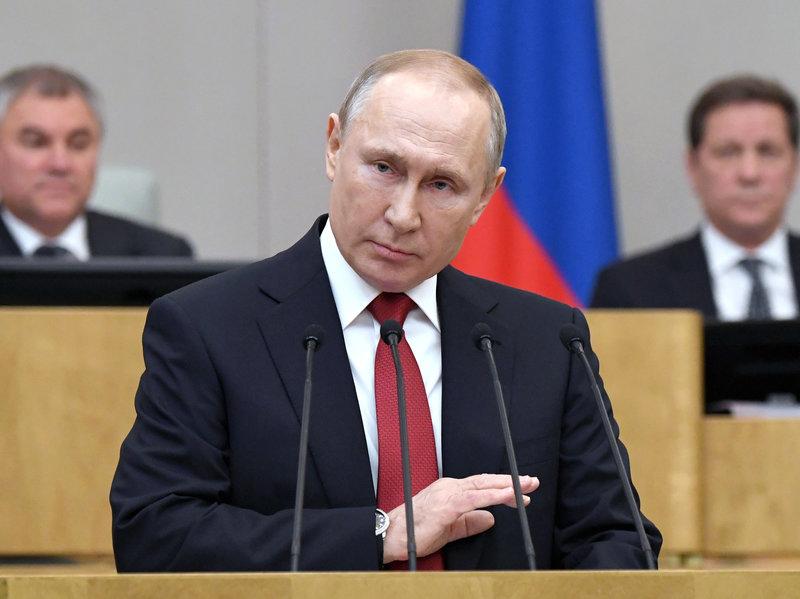With the world focused on combating the deadly coronavirus pandemic, and whole societies across the West hunkering down in quarantine mode, President Putin authorized a controversial law on constitutional changes that could theoretically allow him to be president until 2036.
The 67-year old Russian president signed the measure Saturday, which barely made a blip in world headlines considering highly impacted Covid-19 countries are simply now fighting to survive and stabilize their economies through the outbreak. The proposed change to the Russian constitution is still subject to a national vote, however.

First the Constitutional Court must rule on the legality of the changes, which would lead to the next step, a planned nationwide vote on April 22. It passed easily through Russian parliament last week with a mere single vote against it.
Currently, Putin is barred from running for president again when his term expires in 2024, given term limits, but the new law would reset this. A single presidential term is 6 years.
Speaking at the State Duma last Tuesday, Putin appealed the stability of the nation during chaotic and uncertain times of enemies both within and without:
It’s important, he said, for a president to ensure the country’s “evolutionary development.” Now, he said, is not the time to move too quickly to change how Russian state power operates: “We have had enough revolutions.”
Perhaps most interesting was that he actually appealed to the historical development of the same issue in the United States:
Putin told lawmakers on Tuesday that he did not endorse completely eliminating presidential term limits, one element of the proposal by Tereshkova. But he strongly backed the idea of resetting the number of terms for which he could run.
In his appeal to parliament, Putin also pointed to other countries that have no restrictions on presidential terms. Even in the United States, he said, the two-term limit has only been in place since the 22nd Amendment was ratified in 1951.
Among other constitutional changes authorized by Putin are a permanent constitutional outlawing of same-sex marriage, as well as inclusion in “a belief in God” named as one of Russia’s traditional values.
All of this follows Putin’s major January shake-up which led to the resignation of the government. Though Putin touted the move as giving more power to parliament and democratic institutions, critics in the West saw it as ultimately leading to his solidifying his further rule and hold across other Russian branches of government.